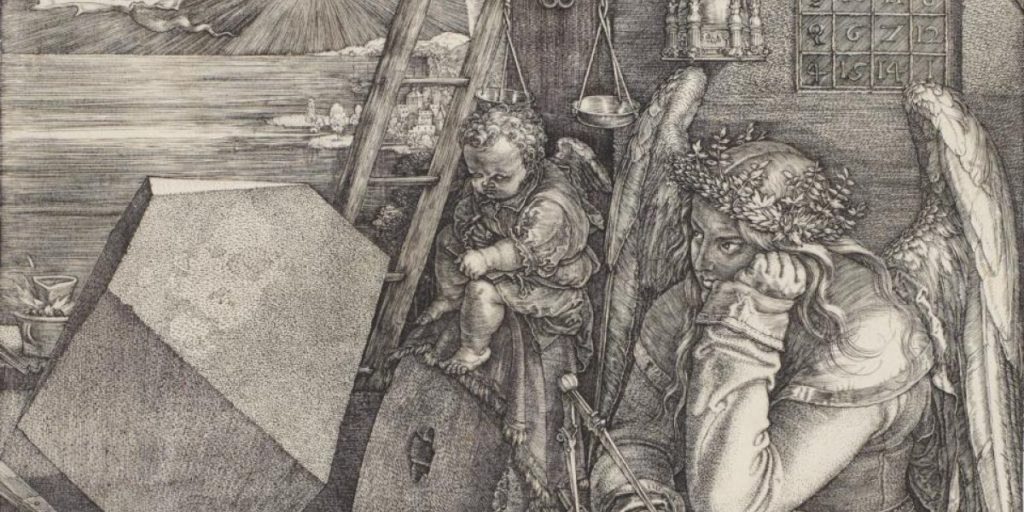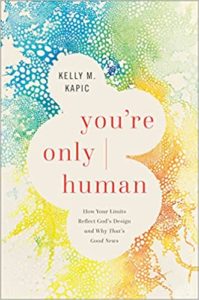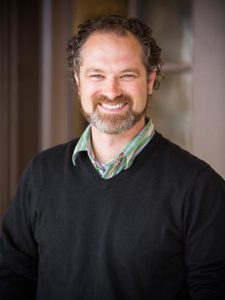
Have I Done Enough? Facing our Finitude
Creaturely finitude is less an idea we discover and more of a reality we run into. All of us bounce between the illusion that we are in control and the world’s demonstration that we are not. Whether through tragedy or simply as the result of aging, we all are repeatedly reminded that we are fragile and dependent creatures. What we do matters, and we can be resilient. We can and do change things. But when we suppose that we can control all our circumstances, we soon find that we can’t. We don’t say the words, but we live as though the weight of the world were on our own shoulders. And it exhausts us. Behind the patient grin on our faces we hide a lingering rage about the endless demands that must be met, unrealized dreams, and relational disappointments.
The Crucial Question
Here we face a crucial question: Does this dissatisfaction always mean that we have sinned, or is something else going on? Are we required to overcome these perceived shortcomings? Some treat these limitations as indicating a moral deficiency or as an obstacle in a competition that can and should be conquered. One common response in the West is to seek self-improvement through greater organization in our lives. We skim the internet for short articles on time management, since we long ago gave up on reading whole books. Sometimes we decide to get up earlier or stay up later, hoping to add another hour or two of productivity to our lives. Since we can’t put more hours into the day, we try to change ourselves. We try to do more, be more. Normally at this point in the story we draw attention to how much TV the average American watches, how much time is lost consuming mindless digital content and games. But what if our problem is not time management? What if rather than serving as the cause of our problems, the draw of mind-numbing screen time was a sign of a deeper malady? Maybe such escapism reveals a sickness in our souls that we have been neglecting. And rather than just being a problem for the “world” out there, these are signs to which Christians should also pay attention. I think we have a massive problem, but it is not a time-management issue. It is a theological and pastoral problem.I think we have a massive problem, but it is not a time-management issue. It is a theological and pastoral problem. Share on X
We live in a fallen world. Sin has affected everything from our heads to our hearts, from our body chemistry to sociopolitical dynamics. Because of this we sometimes wrongly attribute all our problems to sin, when in fact they are often a matter of running up against the limits inherent in being finite creatures instead of being God. We are, by God’s good design, finite. For the purposes of this book, when I say “finite,” I will normally be focusing on good, created human limits: all creatures are limited by space, time, and power, and our knowledge, energy, and perspective also have always been limited. In other words, please do not necessarily read “death” into the word “finitude” as used here, since that raises a whole set of different questions and is not, for the most part, what I am focused on in these pages. This book focuses on the limits that are part of God’s original act of making us, which he called “good.”
Often when we rush to meet all the expectations that surround us and look at our bottomless to-do lists, we desire to become infinite in capacity. We think, “If only I had more time, energy, and ability, then I could get everything done, which would make me and everyone else happy.” But meeting endless expectations would require that we possess God’s infinite attributes and prerogatives as our own. Sometimes lurking under our desires to expand our abilities is the unspoken temptation: “If only I were the infinite Creator, not a finite creature . . .”
The Joy of Being a Creature
So how can we proceed? I want us to take time to carefully think about our creatureliness. This will reveal limits, dependence, love, reliance on the grace of God, and worship. We will examine the joy of being a creature and the freedom of resting on the promises of the Creator. We will question harmful and unrealistic ideals and begin to appreciate the messiness of our complex lives. As we do this, the following central concepts will guide my reflections:Meeting endless expectations would require that we possess God’s infinite attributes and prerogatives as our own. Share on X
- We are not under any requirement to be infinite—infinity is reserved for God alone. Rather, in and through our creaturely limits we are called to love God with our whole heart, soul, mind, and strength and to love our neighbor as ourselves. In other words, loving both God and neighbor falls completely within the range of creaturely finitude. This takes us to my second guiding observation.
- We need to stop asking (or feeling that we should ask) for God’s forgiveness when we can’t do everything, and we need to ask forgiveness for ever imagining we could!
Once we see ourselves within this framework, where our creaturely finitude plays a good and essential part, the pressures to fulfill endless expectations take on a different appearance. We begin to relate to God and others in a more fruitful way: no longer do we aspire to have infinite capacity—that is God’s job! We worship him as he made us: dignified, purposeful, vulnerable, finite creatures. We do not apologize for our creaturely needs and dependence on others, for we discover this is how God made us, and it is good. Examining some of our false assumptions (outside and inside the church) will show us why we struggle with our human limits and how to celebrate the goodness of being a creature of the God who loves what he made. God delights in our finitude: he is not embarrassed or shocked by our creatureliness. Since he is not apologetic about it, we should stop apologizing for it ourselves.
 ou’re Only Human: How Your Limits Reflect God’s Design and Why That’s Good News
ou’re Only Human: How Your Limits Reflect God’s Design and Why That’s Good News
